Lawsuits and land rights: Next B.C. government has its hands full with First Nations
Indigenous candidates, activists and experts weigh in on what next week’s provincial election could mean for resource development in B.C.
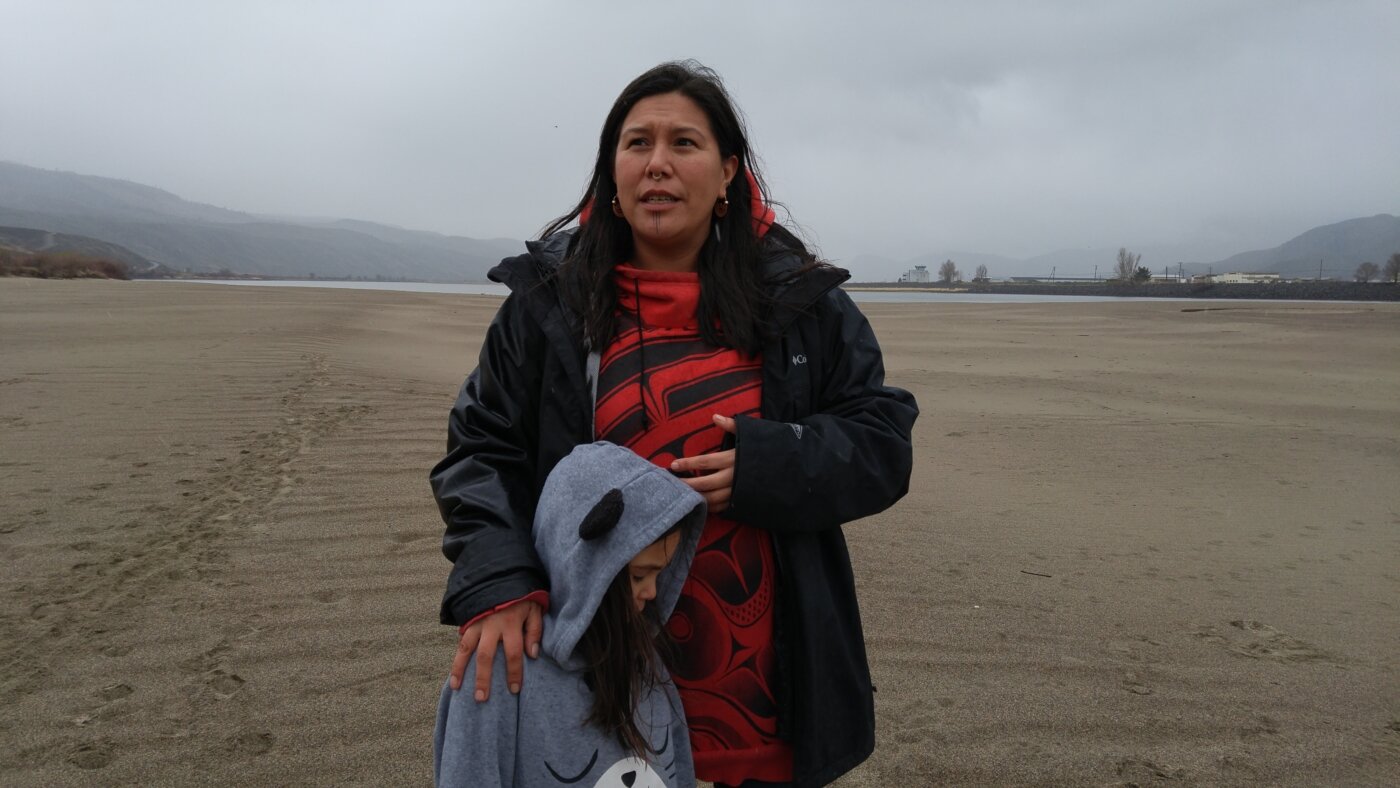
Kanahus Manuel stands beside the vast North Thompson River on the industrial outskirts of Kamloops, B.C., a sacred spot for the Secwepemc people. If all goes according to plan, Kinder Morgan, the largest energy infrastructure company in North America, will begin drilling beneath the river later this year as part of its Trans Mountain Expansion Project.
But Manuel wants to get in the company’s way.
An Indigenous rights activist, she’s leading a group of grassroots Secwepemc people who are planning to re-establish traditional villages by building 10 small homes along the route. “What we want to really establish is challenging the provincial jurisdiction over our territory by living and occupying on our land,” Manuel tells me. “The province does not have the title to issue permits to even give Kinder Morgan the [permission] to do that.”
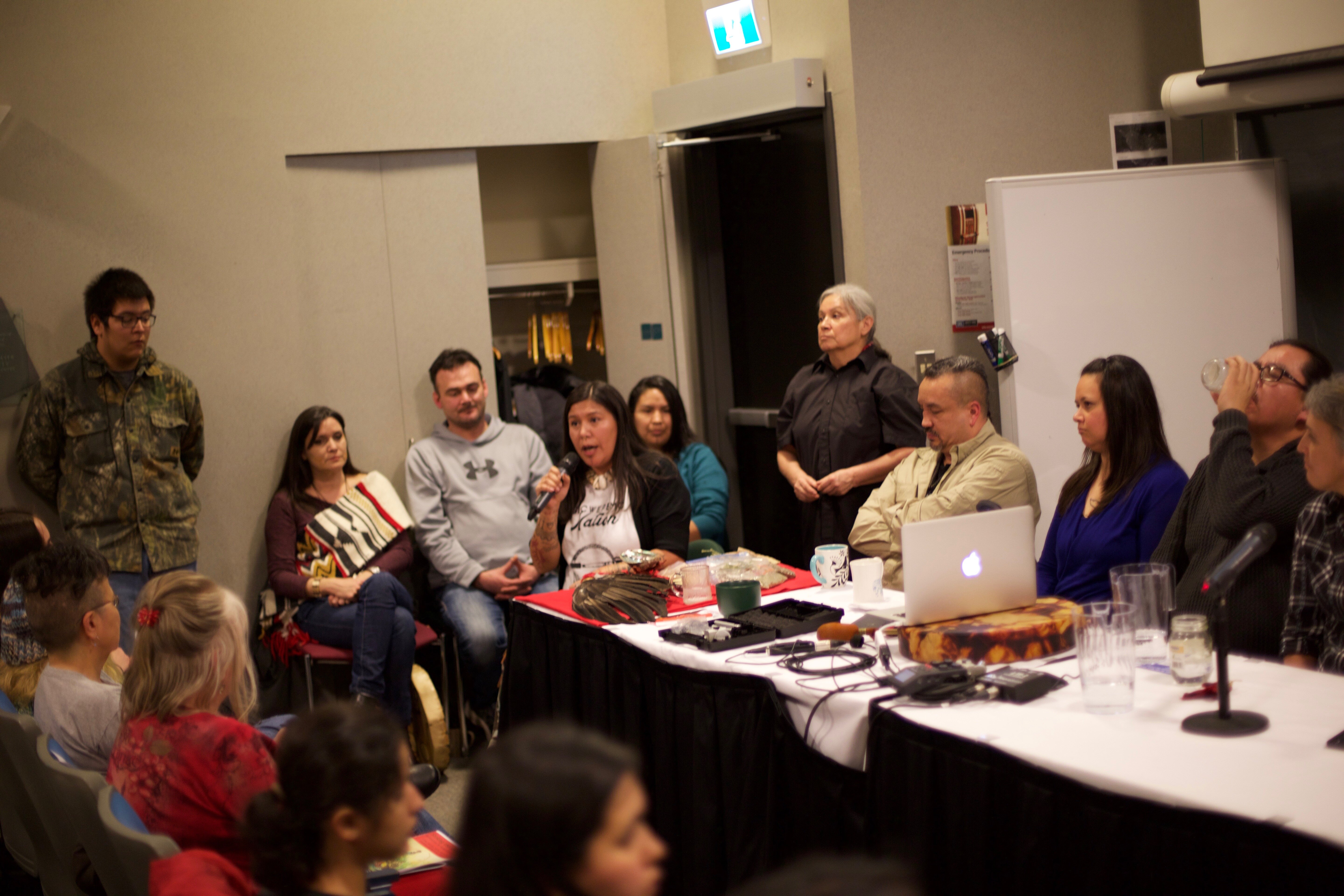
The B.C. government approved Kinder Morgan’s $7.4-billion proposal in January after the federal government gave its approval last November. But Manuel firmly believes that final permission for this pipeline route, which stretches from Edmonton to Burnaby, can only be given by the Secwepemc people and other First Nations.
Jurisdiction over Indigenous territory is a complex issue, and next week’s B.C. election will have big implications for how it’s interpreted — and given legal force — in the province. Both the B.C. NDP and Green Party promise to endorse the United Nations Declaration on the Rights of Indigenous Peoples (UNDRIP), which calls for governments to achieve the free, prior and informed consent of Indigenous people before moving forward with resource development projects on their traditional territories.
This would be good news for land-rights activists and environmentalists who want to see energy projects like Kinder Morgan’s live or die by the say of First Nations. But there are concerns, among developers and community members eager for jobs, that giving Indigenous communities more power would stall projects.
Prime Minister Justin Trudeau’s Liberal government campaigned on a promise to endorse UNDRIP at the federal level. After being in office, federal Justice Minister Jody Wilson-Raybould told a crowd of First Nations leaders in July 2016 that inserting UNDRIP into Canadian law was “unworkable.” At the time, Canada had endorsed the declaration, but opposed the wording of free, prior and informed consent. The Liberals also sparked tensions by approving mega-projects without the consent of some First Nations who were impacted.
"There's some really good agreements being worked out. Most First Nations, all they want to be is included, and that's happening in the northwest."
Ottawa’s tone changed last month, however, when Indigenous and Northern Affairs Minister Carolyn Bennett officially retracted Canada’s objections. “We will amend laws written in a paternalistic and colonial way, and implement direction given to all ministers in [Trudeau’s] cabinet,” she declared at the U.N. Permanent Forum on Indigenous Issues in New York.
Bennett’s statement came in the midst of election season in B.C. — a province where lawsuits over First Nations’ land rights are often the final roadblock to getting resource development projects off the ground. How major resource development projects get approved — or denied — by Indigenous people could completely change, depending on which party forms the next government in Victoria.
Is the NDP’s promise realistic?
Earlier this week, a group of First Nations leaders launched an “Anyone But Clark” campaign targeting sitting Liberal Party Premier Christy Clark. They’re disappointed with Clark’s push on major resource projects — like the Site C dam, numerous proposed liquefied natural gas (LNG) projects and Kinder Morgan’s Trans Mountain pipeline expansion — all of which face some opposition from First Nations whose territories these projects impact.
The BC Liberals, while claiming to be committed to “concrete measures to achieve reconciliation,” have danced around endorsing UNDRIP or using the word “consent” in their party platform.
“The legal standards of approval for large-scale resource development projects [have] elevated to the level of consent. We’ve moved beyond the need for mere consultation, and yet the provincial government under Premier Clark is refusing to acknowledge that reality,” says Grand Chief Stewart Phillip of the Union of B.C. Indian Chiefs.
Some Indigenous leaders and professionals believe the Liberals aren’t necessarily trying to dodge reconciliation commitments.
“I think that they bring that little bit of real-world perspective on how difficult it is to implement something as all-encompassing and broad and inspirational as UNDRIP is,” says Sarah Robinson, who hails from the Fort Nelson First Nation in northeastern B.C. and is head of Rainwatch Consulting, which provides governance planning and advice to First Nations. “Having worked in government myself, it is much easier to say than to do.”
Robinson tells me it’s “certainly admirable” that the NDP have promised to fully endorse UNDRIP, but it’s not realistic in a four-year term. “I find that they often take about 10 to 20 years to catch up when significant court decisions come down, or significant approaches are put together to support things like UNDRIP,” she adds.
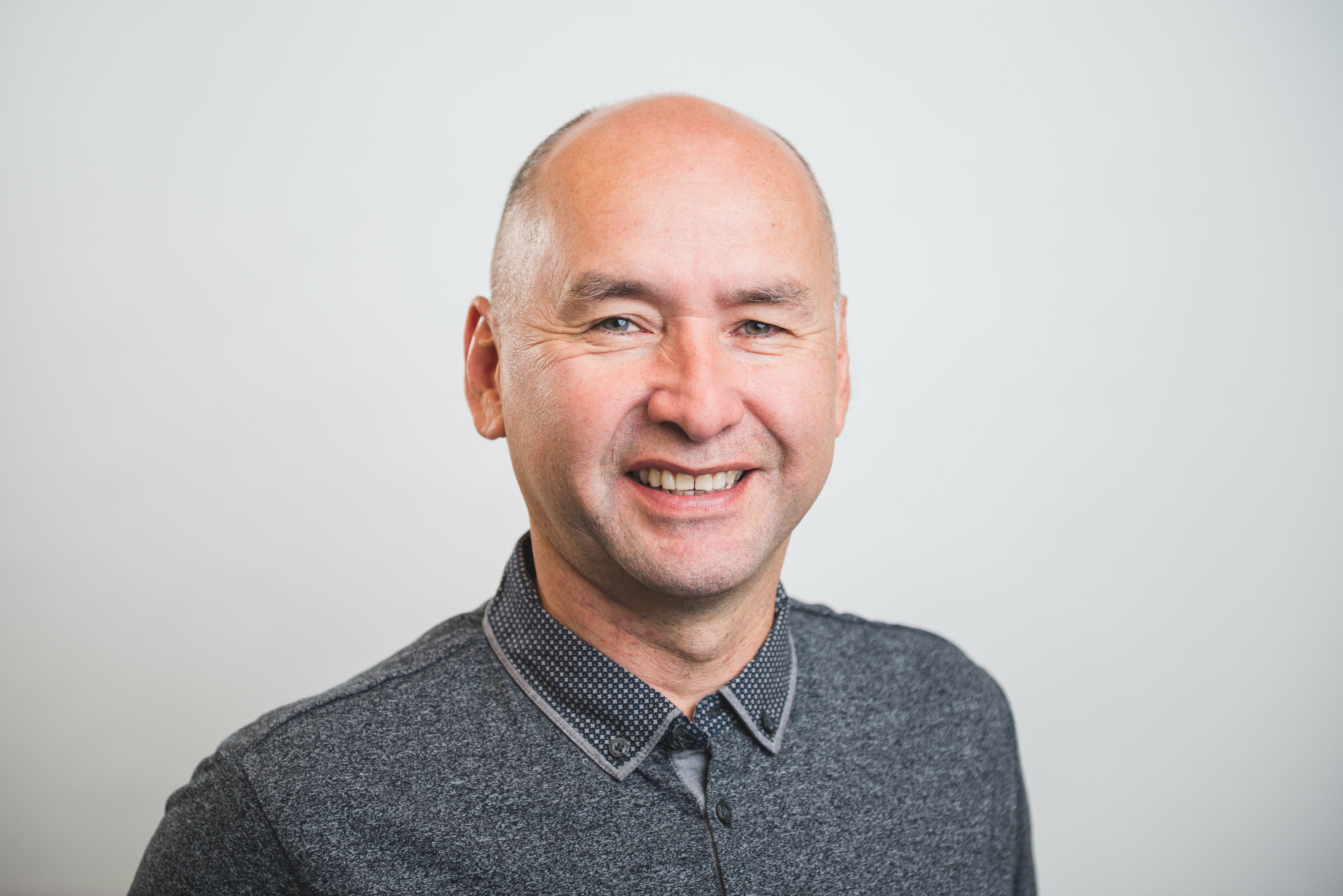
One of the Liberals’ most high-profile Indigenous candidates, Ellis Ross, who’s running in the Skeena riding, calls UNDRIP a “distraction” from the partnership that First Nations already have with government and industry. “There’s some really good agreements being worked out. Most First Nations — all they want to be is included, and that’s happening in the northwest,” says Ross, former chief of the Haisla Nation and an outspoken champion of the LNG industry.
“To bring up something external to Canada like [UNDRIP], I mean you’re talking about negotiations, you’re talking about changing legislation, you’re talking about the existing case law,” he tells me. “That doesn’t really help anybody on the ground. The people on the ground, the average citizen, all they want to see is: ‘Do we have a strong economy? Do we have enough revenue coming in to pay for services?’”
What about the Liberals’ promises?
The BC Liberals say they’re proud of the relationships they’ve built with First Nations, and point to the nearly 400 economic agreements they’ve signed with Indigenous communities since 2013 — many linked to participation in the LNG industry. This approach aligned with Ross’ goals when he represented the Haisla in Kitamaat, where three LNG terminals are currently being proposed. “From what I’ve seen, government in our territory has done a good job over the years,” he tells me.
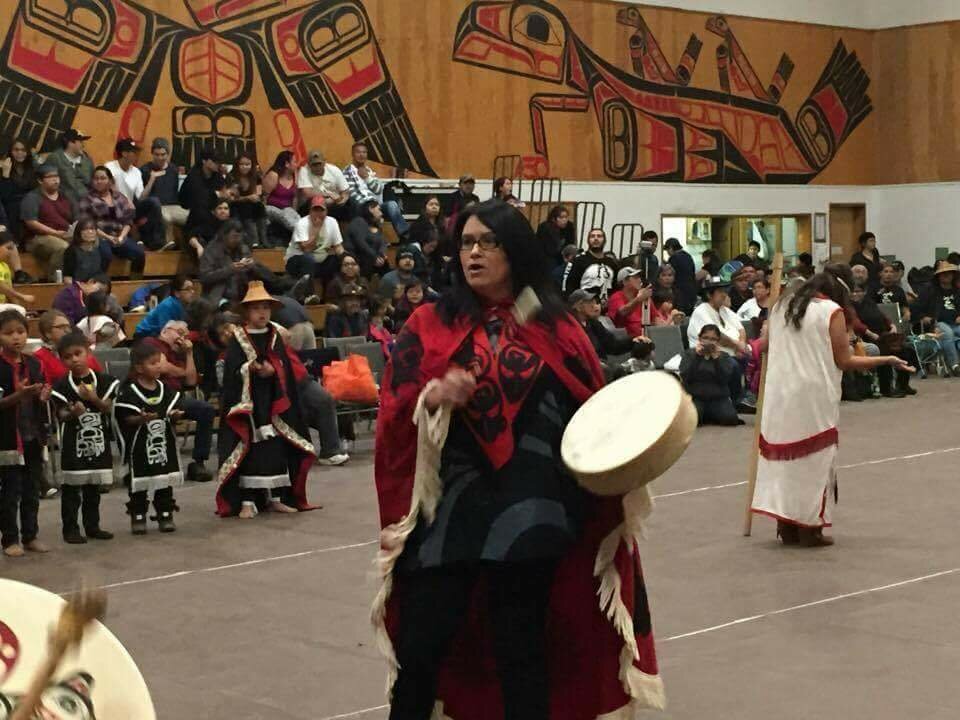
But the promise of a lucrative LNG industry that Clark campaigned on in 2013 has yet to materialize, with no final investment decisions made from proponents of any of the projects. Meanwhile, many First Nations communities that signed agreements with Clark’s government have been divided over what some are calling a flawed process.
That’s put another Indigenous candidate for the Liberals in a tricky spot.
Wanda Good is running in the Stikine riding, and is deputy chief councillor of the Gitanyow. The Gitanyow are one of a handful of First Nations to file a lawsuit over the federal government’s approval of the Pacific Northwest LNG terminal proposed for Lelu Island on the north coast, just south of Prince Rupert — a project heavily supported by Clark.
“I can't really comment,” Good says of the court case. What she does tell me is that there are First Nations in her riding who have signed LNG agreements. "There are 63 First Nations across the province that have signed onto pipeline agreements, so there is open discussion in the riding, and I will commit to being involved in those discussions.”
Those agreements don’t necessarily mean there was free, prior and informed consent, nor adequate consultation, argues Anne Marie Sam, a councillor for the Nak'azdli Whut'en near Fort St. James and an NDP candidate for Nechako Lakes. “We had to go to court to get the government to come to the table,” she tells me. “It’s not out of the goodness of the Liberals’ heart that they thought, ‘Okay, let’s work with First Nations.’ It was First Nations having to challenge them in court.”
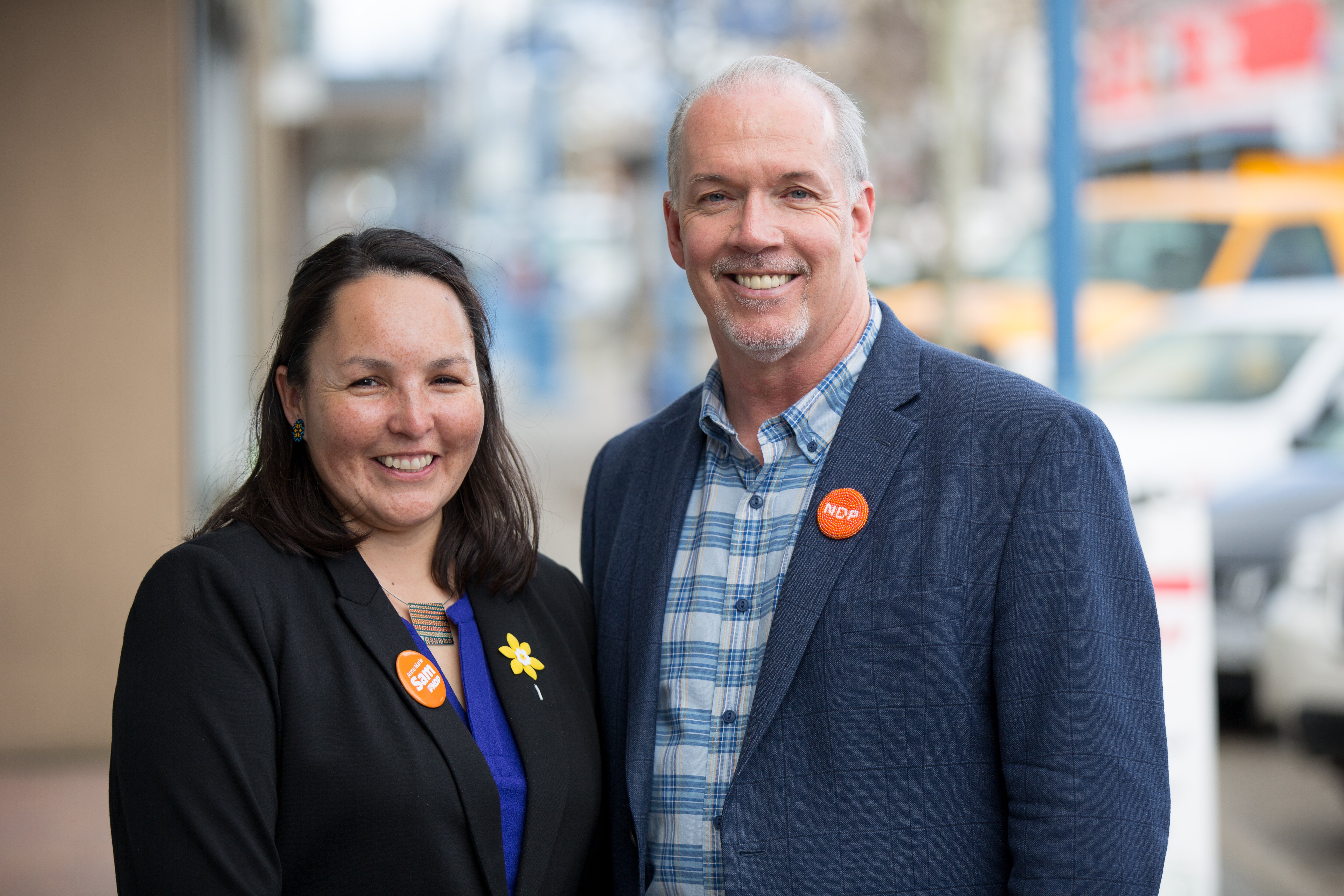
Nak'azdli Whut'en did sign a benefit agreement with the Liberal government in relation to the proposed Pacific Trails Pipeline, but Sam says the community felt pressured by the process, and signed out of a fear of missing out — not because they felt they had any say. “I felt with LNG, we were being asked to sign here and accept this project without knowing all the details.”
She adds, “I think you have to step back and see what is the best way to do this and what is the best consultation. And if communities are not wanting it, how do we respect communities that say this isn’t what we want?”
The government and First Nations have to share the land
Darwin Hanna is a B.C.-based Indigenous lawyer with expertise in land claims, self-governance and business law. He says provincial governments legally could implement UNDRIP — it just requires the political will to do so. “Right now, we know that the provincial legislation does not fully endorse UNDRIP, so that’s the challenge,” he says. The main concern, says Hanna, is “having arrangements to recognize co-jurisdiction between the province and First Nations.”
That unresolved challenge of jurisdiction is at the root of the conflict brewing in Secwepemc territory, where Kanahus Manuel and others are preparing for a long battle to stop the Trans Mountain Expansion Project. The oil pipeline is also facing numerous lawsuits from First Nations claiming they weren’t properly consulted. Manuel says she’s not waiting for a judge to confirm what she already knows, nor is she holding her breath for the next provincial government to endorse UNDRIP.
“Native people just have to go out and assert it,” she tells me passionately. “And that’s where we’re at right now — is asserting all of our rights and titles that’s recognized in all of these Supreme Court cases.”
Manuel isn’t alone in her approach. In March, she joined land defenders from all over B.C. who gathered in Vancouver to strategize, fundraise and share their experiences resisting projects on their territories. Members of the Gitwilgyots tribe have occupied Lelu Island in protest of the Pacific Northwest LNG project since August 2015. Members of the Gitxsan Nation have occupied the Madii Lii camp, blocking the path of the Prince Rupert Gas Transmission Line, which would transport natural gas to Lelu Island. And the Unist'ot'en camp is blocking several natural-gas pipeline routes in Wet’suwet’en territory.
"But if you fuck with us ... we're going to lay down the law. We're going down to lay down our law."
Meanwhile, in B.C.’s Lower Mainland, members of the Kwantlen First Nation are preparing to build longhouses in the path of the Trans Mountain Expansion Project. “There are two MLAs who are key figures in the provincial government that are in our territory, [Minister of Natural Gas Development] Rich Coleman and [Environment Minister] Mary Polak,” Kwantlen member Brandon Gabriel tells me. “They try to paint this picture that we are consenting, that we are friendly. And if you’ve ever been to Kwantlen, we are friendly. But if you fuck with us ... we're going to lay down the law. We’re going down to lay down our law.”
The message is clear: The issue of jurisdiction isn’t going away for the next B.C. government — no matter which party wins. Rainwatch Consulting’s Sarah Robinson has some free consulting advice for whoever is B.C.’s premier on May 9.
“If a protest camp or blockade of some kind is taking place over a large resource development project, in my personal opinion, sending public servants or representatives from the company to do the negotiating is almost setting yourself up for failure,” she tells me. “It’s certainly worthwhile for the leader of that political party to consider heading down there themselves to begin dialogue and communicate respectfully that they are there in the spirit of honouring that nation-to-nation relationship.”
